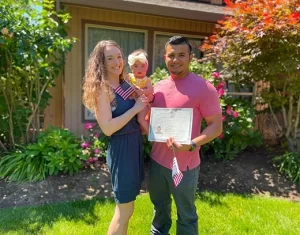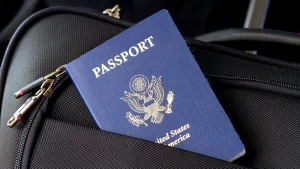How Children Acquire Citizenship Through Their Parents

Understanding how children become citizens through their parents is essential for families navigating U.S. immigration law. Whether born in the United States or overseas, this comprehensive guide investigates several legal routes, criteria, and processes for conferring children citizenship. We will answer often-asked questions, offer detailed instructions, and include all required specifics to guarantee you have the knowledge required.
Overview of Citizenship Through Parents
Children can become citizens in three basic ways:
- By Birth in the United States: Usually, unless in some unique circumstances as when the parents are foreign diplomats, a child born in the USA to foreign parents usually becomes a U.S. citizen at birth.
- By Descent (Born Abroad): Citizenship is passed from a U.S. citizen parent to a child born abroad, according to specific residency or physical presence criteria. Descent, Born Abroad is sometimes referred to as U.S. citizenship by descent or American citizenship by descent.
- Through Naturalization of Parents: If their parent(s) become naturalized before the child reaches eighteen and other requirements are satisfied, the child may immediately become a citizen.
Each method has its own rules and requirements, which we will examine in detail.
Acquiring Citizenship by Birth in the U.S.

Usually, a child born in the USA to foreign parents’ citizenship situation is automatic. The 14th Amendment to the U.S. Constitution controls this since it gives everyone born in the United States citizenship.
Important Factors Affecting Birthright Citizenship
- Diplomatic Exemption: Children of foreign diplomats born in the United States are not entitled to US citizenship.
- Proof of Birth: A U.S. passport is the primary document proving US nationality by birth.
Common Questions
- If you’re born in America, are you a citizen? Yes, aside from very exceptional circumstances.
- If I was born in the United States, what nationality do I have? Unless dual nationality is acknowledged, you are an American citizen.
Citizenship Through Parents by Descent
American citizenship through parents depends on the citizenship and residence history of the parent(s) for children born abroad.
Eligibility requirements for US Citizenship by descent:
- At least one parent must be of U.S. nationality at the child’s birth.
- The U.S. citizen parent must satisfy particular physical presence criteria, such as having lived in the country for at least five years, two of which were following age 14.
How to Prove Citizenship by Descent

Parents have to send Form N-600, Application for Certificate of Citizenship, to U.S. Citizenship and Immigration Services (USCIS). The form requires documents such as:
- The child’s birth certificate.
- Proof of the parent’s citizenship, such as a passport or certificate of naturalization.
- Evidence of the parent’s physical presence in the United States under citizenship.
Naturalizing Parents: Citizenship Through Naturalization of Parents
If certain requirements are satisfied before they reach eighteen, children can automatically acquire citizenship through their parents being naturalized.
Eligibility Requirements
One needs to fit the following to be qualified:
- Age: The child has to be less than eighteen.
- Residency: The child has to be a lawful permanent resident or green card holder.
- Living Arrangements: The child has to reside under both legal and physical custody of the naturalized parent or parents.
Automatic Naturalization Process
If these requirements are satisfied, the kid instantly receives citizenship and may apply for either a U.S. Citizenship Certificate (Form N-600) or a passport.
Common Questions
- If my mother is naturalized, do I become a citizen? Yes, provided you meet the above criteria.
- Do children under 18 get a naturalization certificate? If they naturally become citizens, they qualify for a Certificate of Citizenship.
Citizenship Through Adoption

Adopted children of US citizens may also get citizenship under the Child Citizenship Act of 2000.
The Requirements
- The adoption has to be finished.
- The child lives in the United States under the legal custody of one or more adoptive parents.
- The adoptive parents have to be Americans.
For a Certificate of Citizenship for their adopted kid, parents must complete Form N-643.
Citizenship Through Parents After 18
A child loses eligibility for automatic naturalization through parents if they do not become citizens before turning eighteen. Still, they might seek naturalization on their own using accepted procedures.
Important Question
- Citizenship through parents after 18 — is it realistic? No, however, naturalization is still a possibility.
Step-by-Step Guide to Acquiring Citizenship Through Parents
-
Determine Eligibility
o Evaluate the child’s age, birthplace, and parent citizenship status.
o Determine which path fits you: birth, descent, or naturalization.
-
Gather Documentation
Essential documents include:
o Child’s birth certificate.
o Evidence of parent’s citizenship.
o Legal custody or adoption records, if relevant.
o Proof of residency or physical presence for naturalization by Heritage USA.
-
File the Appropriate Forms
o Submit Form N-600 for descent or naturalizing.
o For adopted children, submit Form N-643.
-
Apply for a Passport

Apply for a U.S. passport to formally document travel and identity rights once citizenship is confirmed.
Common Difficulties Acquiring Citizenship Through Parents
Families may find difficulties obtaining citizenship for their children even with the various routes. These are some typical problems together with advice on how to solve them:
-
Missing or Insufficient Documentation
Often proving citizenship through parents requires complete documentation, such as evidence of parent residence or citizenship status. The process could be complicated or delayed by missing records.
Solution:
- Ask relevant government agencies for copies of important records.
- See an immigration attorney to find other means of proving eligibility if some records are insufficient.
-
Meeting Physical Presence Requirements
Regarding American citizenship by descent, the U.S. citizen father usually has to fulfill certain physical presence criteria.
Solution:
- Examine closely the criteria for your situation.
- Compile documentation of the parent’s U.S. time spent, such as tax filings, employment history, or school records.
-
Age Limit
Usually, under 18, children must gain citizenship through their parents being naturalized. Children can miss this important timeframe due to delays.
Solution:
- Starting the procedure early will help.
- If the child is nearing the age limit, give applications top priority and take quick services into account.
-
Challenges for Adoption
For U.S. citizenship for an adopted child, families have to follow all legal procedures, including completing the adoption in a U.S.-recognized country.
Solution:
- Make sure all criteria are satisfied by working with a professional adoption attorney.
- Check whether a child satisfies the Child Citizenship Act of 2000 residency and custody criteria.
Benefits of Acquiring Citizenship Through Parents
Getting citizenship through parents offers several benefits, among which are:
-
Full Legal Rights
Children who become U.S. citizens have the same rights as those born here, including the freedom to live, work, and study without limitations.
-
Ease of Travel
A U.S. passport streamlines foreign travel and grants access to visa-free or visa-on-arrival travel to numerous nations.
-
Access to Education and Healthcare
Public education, financial help programs, and great healthcare are available to Americans.
-
Protection from Deportation
U.S. citizens cannot be deported, unlike those with green cards, thereby offering families more security.
-
Eligibility for Family Reunification

Once a child turns U.S. citizen, they can help family members migrate, therefore generating chances for reunion.
Tips for a Smooth Process
- Consult Legal Experts: Immigration rules can be complicated; so, consult experts.
- Maintain Records: Update and arrange any necessary records.
- Remain Updated: Laws and regulations are flexible; thus, keep an eye on modifications.
Special Cases
- Dual Citizenship: Depending on the regulations of the other country, children with dual nationality could be citizens of both the United States and another country.
- Parent Residency Requirements: For American citizenship through parents, the U.S. citizen parent must usually show notable residence in the country before passing citizenship.
In Summary
Understanding the routes to citizenship is essential whether your child was born overseas or you are handling citizenship through parents before 18. The key information in this guide will help you to properly negotiate the process.
Trust Passage Immigration Law to help you at every stage for professional legal advice. Visit Passage Immigration Law now to guarantee the citizenship future of your child!
